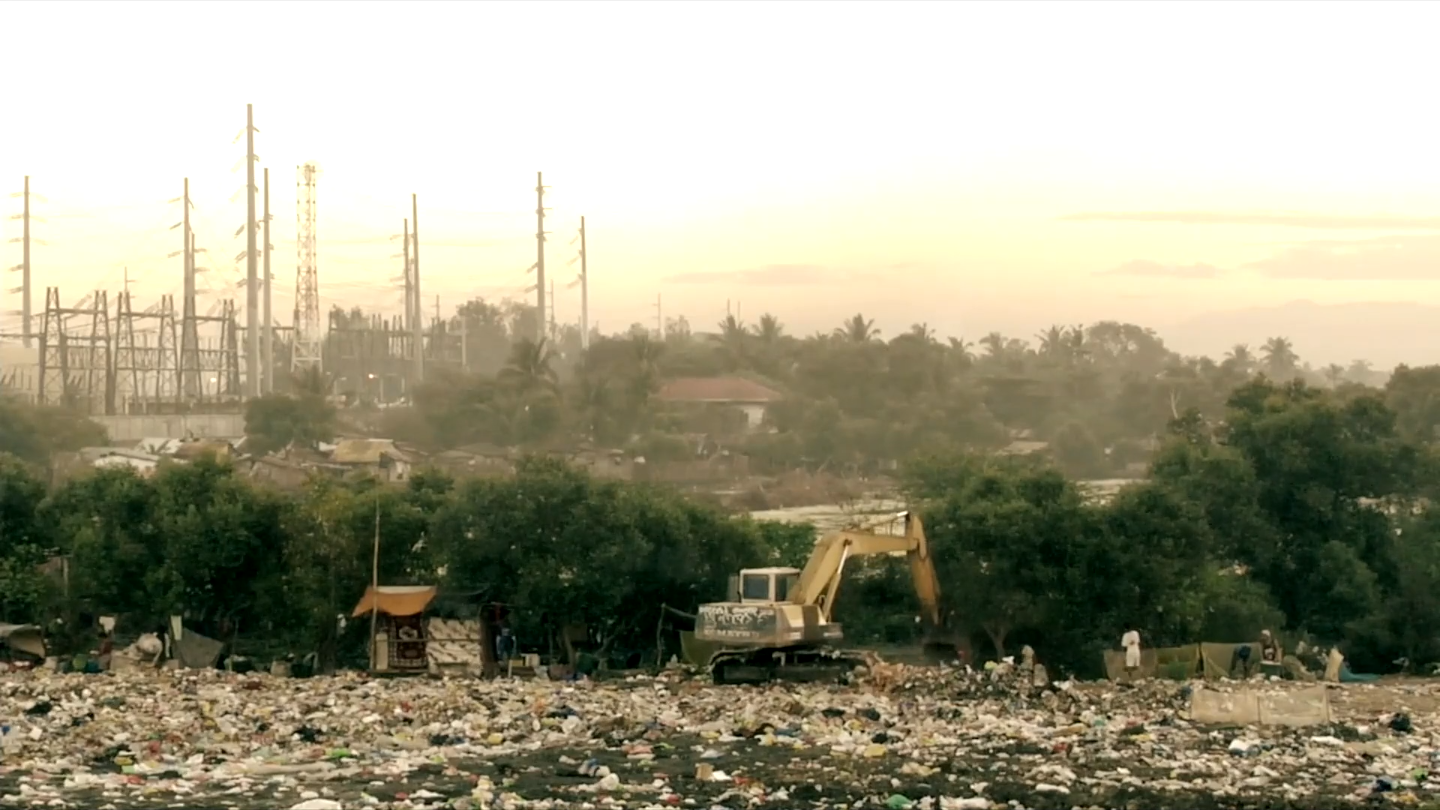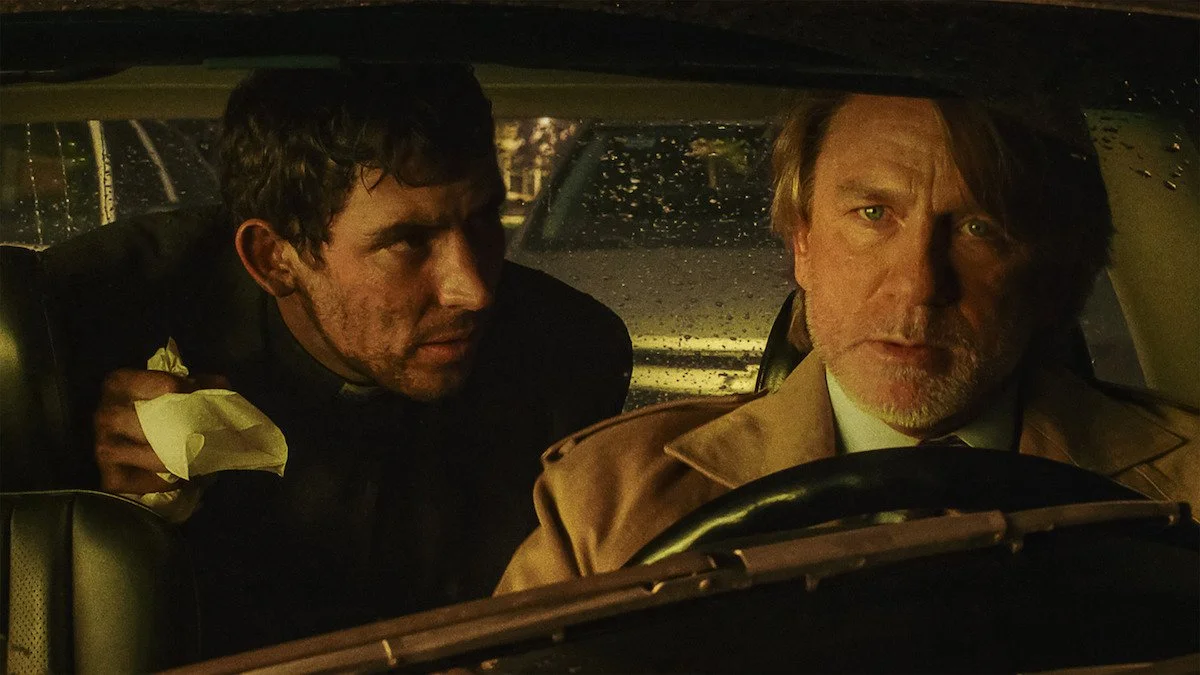‘Adela’ REVIEW: The Elderly and Conflicted
‘Adela’ REVIEW: The Elderly and Conflicted
Adela looks at a gravestone of her husband while talking to him about their children.
Meet Adela Macaraig: a former radio talent and midwife. She spends her twilight years living alone in a shanty at a dumpsite. Her children have all left her for attempts at greener pastures (one works abroad, the other in jail, and one is a house help in the city) and her only friends are the other poor who live among squalor and trash heap. Adela is essentially an old woman discarded by society and on her 80th birthday, she longs to spend it with her own kids. At the heart of Adela are blurred lines: real communities and real people are used alongside fictional characters. Here is a story of loneliness juxtaposed by the sights and sounds of the sociopolitical climate of 2008 Philippines. In attempting to be a personal character study, Adela’s emotional potency is crippled by its lip service to the poor.
A long shot of Bernardo Dumpsite, one of many scenes where poverty is the emphasis of the film.
The film makes its statement on poverty known from the onset: the title character is not seen or heard until eight minutes into the film. Before she is introduced, we are treated to a drawn-out sequence that includes many wide shots of the Bernardo Dumpsite. There is no musical score, no somber piano that dramatizes this impoverished community on the fringes. There is only the constant echo of passing cars and dump trucks, the mountains of garbage, the pregnant young lady and her unfaithful husband, and the occasional plane flying overhead. It is not the first time that this film will open with this, as about four more times the film will proceed to open with a wide shot of the dumpsite community, with the camera choosing to linger and focus on this despite the personal struggles that pervade the title character.
Adela walks home as members of the dumpsite prepare to depart for a rally thanking the President.
It is in this background of poverty that Adela’s personal narrative is carried through. After a quick introduction that briefly places her importance to the rest of the dumpsite community, the film takes us for a fairly straightforward ride into how she spends her 80th birthday. Among these events, she delivers a child, has a manicure, visits church, and meets with different dumpsite fellows who celebrate her birthday with her in one way or another. It’s a fairly mundane movie that is long and arduous in its execution. There are wide and medium shots of Adela that almost do nothing but engage the audience in her insignificance and loneliness as she does simple household work and visits across the dumpsite. Shades of this movie can almost be equated to watching a Tsai Ming-liang piece without a good chunk of the idiosyncratic nature that is associated with his work.
This personal narrative comes into serious conflict with its political undertones. The movie simultaneously wraps Adela in an air of loneliness and talks about the political engagement of poor communities with the then-prominent Arroyo administration. Adela’s radio occasionally talks about rallies and protests against the President; one of the opening lines to the film is about a tarpaulin being commissioned to thank the President; the repeated shots of trash and waste are a reminder that this isn’t just a simple piece on loneliness, but a “commentary” of the period’s impoverished poor. The problem is that it all feels like a half-baked application of reality that is eventually dropped in favor of Adela’s sad and lonely 80th birthday. The film’s conclusion affirms this by shifting back its focus to the personal friends that Adela meets along the way, barely tying together the political realities that are intertwined with Adela. It feels like the squalor and harshness of Adela’s community was just discarded, and the movie simply used her loneliness as a vessel to portray the poor and the plighted.
Adela spends her 80th birthday basking alone in the sunset.
To be fair, Anita Linda’s performance as the titular character is truly worth commending. Despite dealing with few close-ups, she manages to weave in a convincing performance of a neglected mother, forgotten and left alone by her own family. It is nothing short of spectacular thanks to her veteran prowess from working previously with the likes of Lino Brocka (Tinimbang Ka Ngunit Kulang, Isa Dalawa Tatlo, Jaguar), the de Leon family (Noli Me Tangere, Sister Stella L.) and Chito Roño (Itanong Mo sa Buwan). Every aging crevice, wrinkle and bout of isolation that rests on her face could be seen, felt and heard through the screen. One scene in particular highlights this, as she feigns her happiness in the middle of a karaoke session made while celebrating her birthday. It is one of the few particular scenes in this film that can leave a striking impression on the audience.
Adela’s cinematography and editing, for better or worse, are extremely static. The film heavily relies on waist-level shots that deny audiences the capacity to identify Adela’s personal plight. There is one scene where the audience is treated to a close-up of her celebrating her birthday with the baby she just delivered and just as the film is transfixed on Adela’s miserable celebration, it cuts immediately to a less powerful scene; one that seriously diminishes the film’s emotional peaks. It doesn’t help that the camera is practically detached from her, sometimes opting to position her far from the camera and forcing the audience to look at both her and the political narratives that draw attention away from her personal struggle. This doesn’t just come with the baggage of being detached, but also the problem of being a drowsy film to sit through despite the short runtime.
Adela isn’t a terrible film by any means, but its slew of creative choices eventually synthesizes the film into a mixed bag that finds difficulty in being cohesive. It’s a character study that has too much on its plate. Though its treatment of the elderly is something that can arguably be understood and identified, the subtext behind this movie is something that can’t, and it just leaves an unflinching aftertaste.

















